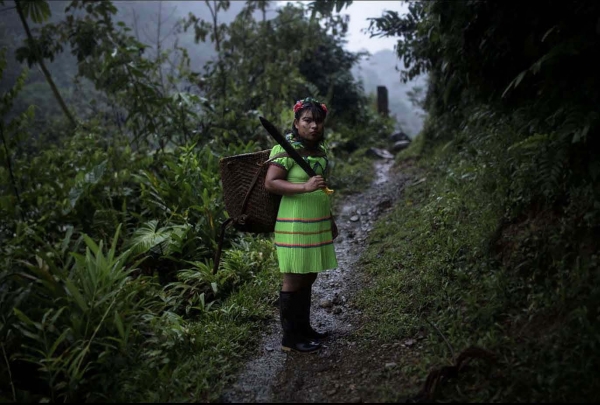BMJ Global Health is open access and online journal collecting high-quality content on global health from policymakers, funders, researchers, and workers. In this report, BMJ Global Health Journal conducts researches to find out to what extent gender, mental health, and resilience of IDP women are at stake in the civil war in Colombia. The purpose of this study is to analyze this issue from a female life experience perspective.
The civil war in Colombia erupted in the 19th century due to socioeconomic and political disparities. To date, 8 million human beings are internally displaced persons (IDPs), and approximately 262,619 deaths are registered. In particular, women suffer oppression, abuse, and any other form of violence. That means not only psychological and mental disorders but also victimization. Therefore, mental health is at high risk for women by identifying one of the most significant challenges among IDPs. Accordingly, many scholars urge the international community to intervene to center the individual for a successful reparation. However, not all victims end up suffering mental disorders. Many of them choose indeed to be resilient. Resilience has not been investigated by other studies so far. Therefore, this report intends to fill this gap based on the following questions: how do women’s experiences during conflict illuminate struggle and survival at work in their lives? How does this relate to the experiences of distress and opportunities for good mental health and well-being?
The relevant study is under the umbrella of the participatory action research (PAR) project, aiming to support communities in developing a conducive environment to mental health in partnership with Universidad de La Sabana, The Centro Nacional de Memoria Histórica, and R.A. Burgess. The PAR method includes five stages, such as systematizing experience, collectively analyzing and problematizing, reflecting on and choosing an action, taking and evaluating action, and systematizing learning. For the purpose of this study, the report focuses on the systematizing experience stage. The methodology is based on life history (LH) interviews to acknowledge IDPs' first-hand experiences. The study conducted in the Cundinamarca department, Sabana Centre Province, included seven Colombian female IDPs living in Colombia for three to ten years. They hold 18 interview sessions overall and 36 hours of conversation. Following the interviews, a team of experts identified two sections of data: factors of driving distress and survival strategies. They chose to take into account factors of distress. Accordingly, they adopted two conceptual frameworks. Firstly, as the literature on women's survival is scarce in this context, experts chose to apply a Latin-feminist perspective to deepen this issue. Secondly, scholars implemented the Skovdal and Daniel resilience framework featuring resilience as the main factor of political economy, communities, and families. The interviews were conducted in the women’s official language and translated into English. In particular, the discussion on specific quotes was fruitful to ensure a faithful interpretation. The methodology used in this research yielded the following results on women’s realities. The experts selected indeed two global themes. The first one relates to the armed conflict and the gendered consequences on women’s emotional well-being by exploring how a gendered civil war has affected women’s lives. The second one includes a response to the emotional consequences of violence and female coping strategies to tackle certain challenges.
This research draws attention to the drivers of female IDP’s emotional distress on gendered and temporal dynamics. As others, experts found out that displacement is permanent. However, they also discovered that it is due to multiple reasons, and it is also continuous. Accordingly, the contribution of the research emphasizes that this instability primarily affects the well-being of these women in terms of mental health and emotional distress. Consequently, the report recommends preventive measures to support women. For example, increasing knowledge on mental health services, promoting knowledge on some healing practices, promoting critical consciousness, identifying spaces and building on local strengths, and establishing links to private and public sectors to ensure a stable economic and social development. Ultimately, the study brings out two sides to a coin. On the one hand, women are masters of their own lives. On the other hand, they are constantly threatened by gender dynamics that may escalate into violence. Therefore, mental health must be preserved throughout the promotion of new opportunities favoring IDP women’s lives to take over emotional distress and psychological disorders.
To know more, please read:
https://gh.bmj.com/content/bmjgh/6/10/e005770.full.pdf
Author: Valentina Di Carlantonio







